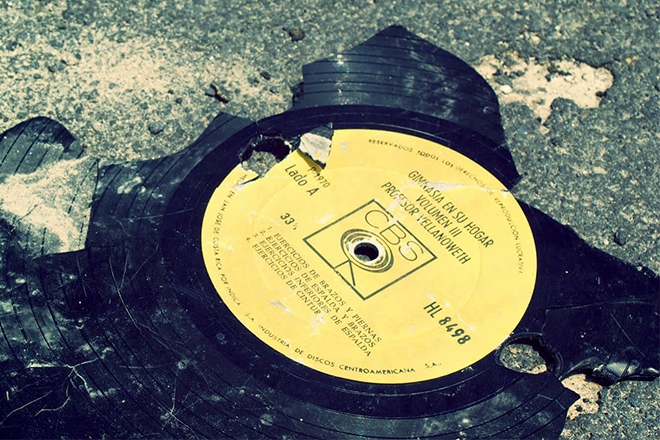A new book explores the impact of vinyl on the planet with part of the problem originating in Bangkok
"The company has been known to pour [PVC] into the Chao Phraya River according to Greenpeace."

What is the human and environmental cost of music? 'Decomposed: The Political Ecology of Music' is a new book that explores this question by uncovering the impact of the music industry on the environment. More specifically, the dirty world of vinyl pressing.
The book, which is written by Kyle Devine, unearths "the environmental cost of vinyl". The author is the head of research and associate professor in the department of musicology at the University of Oslo and is now credited with uncovering "the hidden history of recorded music - what recordings are made of and what happens to them when they are disposed of."
In a piece he wrote himself in The Guardian, Devine delivers an excerpt that he adapted from the book:
"Inside a US vinyl pressing plant – its owners have asked that I do not give its location – dozens of hydraulic machines run all day and night. These contraptions fill the building, as long as a city block, with hissing and clanking as well as the sweet-and-sour notes of warm grease and melted plastic. They look like relics, because they are. The basic technological principles of record pressing have not changed for a century, and the machines themselves are decades old."
"Employees are cagey about the separate warehouse where this company stockpiles its plastic. But the empty fridge-sized cardboard boxes on the pressing floor hint at their origin. They are marked with big red letters proclaiming, “Vinyl compound” and “Product of Thailand”."
The author soon finds himself on flight to Thailand where he ends up at the Thai Plastic & Chemicals Public Company Limited in Bangkok. Much of the polyvinyl chloride (PVC) used by vinyl pressing plants is made here.
"PVC contains carcinogenic chemicals, and the operation produces toxic wastewater that the company has been known to pour into the Chao Phraya River according to Greenpeace, which says TPC has 'a history of environmental abuses' going back to the early '90s," Devine writes.
Interestingly, the author claims that CO2 equivalents generated by consumption of recorded music have not declined in the era of music streaming. That could be because "streaming music relies on infrastructures of data storage, processing and transmission that have potentially higher greenhouse gas emissions than the petrochemical plastics used in the production of more obviously physical formats such as LPs. To stream music is to burn coal, uranium and gas.”
Read the full article by The Guardian here and buy the book in its entirety here.
Photo via Electronic Beats


